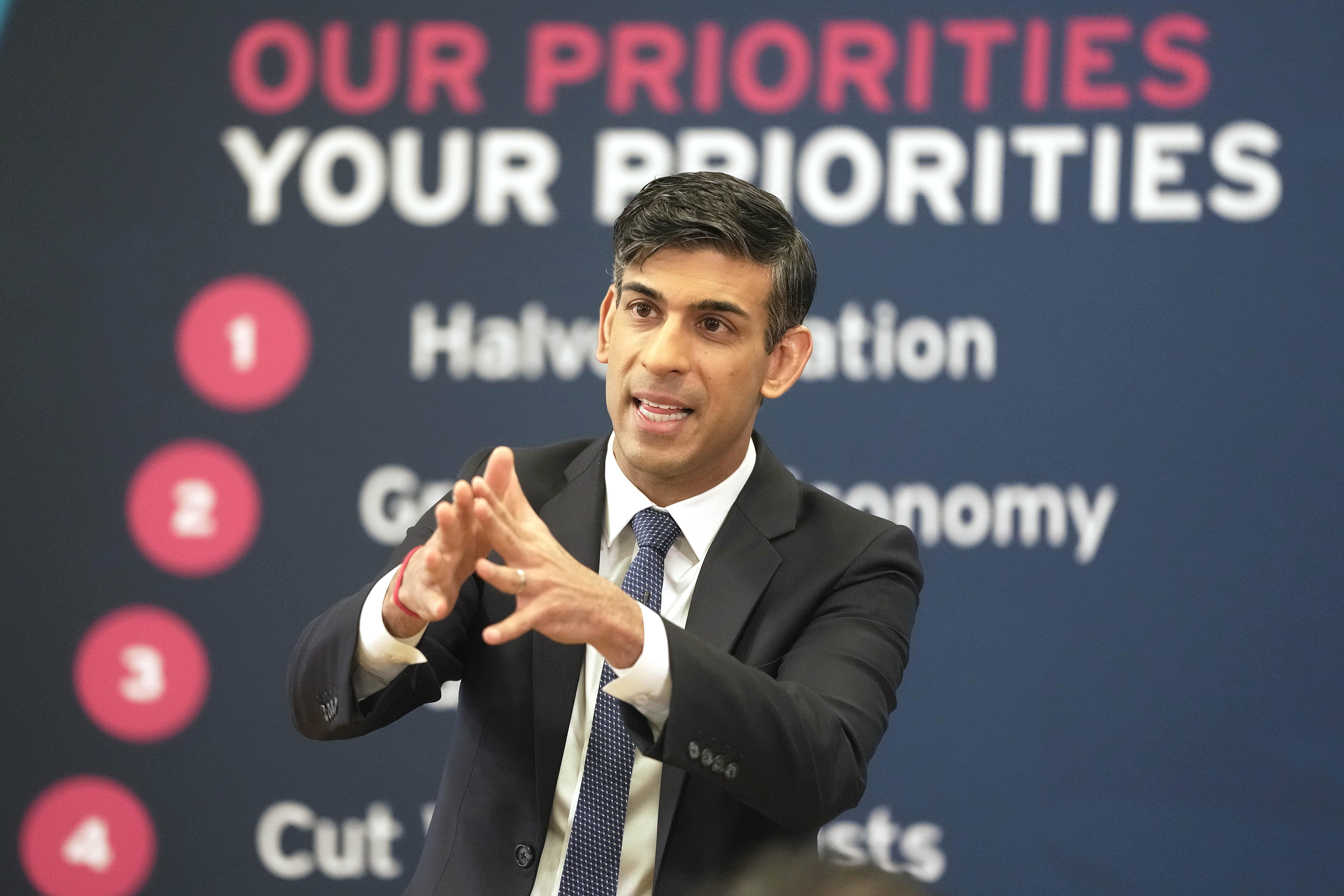The Conservatives may look united – but a battle for the soul of the party looms
The prime minister knows he will need to set out fresh ideas and his own philosophy in next year’s election manifesto, writes Andrew Grice


The Conservative Party might look more united now Rishi Sunak has steadied the ship, but it was revealing how the bitter divisions festering just beneath the surface reemerged after the death this week of Nigel Lawson.
Libertarian allies of Liz Truss hailed Margaret Thatcher’s chancellor as their tax-cutting hero and accused Sunak, who also claims Lawson as his guiding star, of trashing his legacy. They claimed Sunak had broken a central tenet of Lawson’s strategy by freezing income tax thresholds to raise £28 billion a year by 2027-28 – the equivalent of raising the 20p basic rate by 4p. Incredibly, some Truss allies even label Sunak a socialist. News to me.
The libertarians are having a bad bout of selective memory syndrome. After all, Lawson backed Rishi Sunak in last summer’s Tory leadership election, warning prophetically that Truss’ plan to cut taxes without first reducing inflation would raise the government’s borrowing costs and weaken the pound.
Despite Truss’ Thatcher tribute act, Lawson saw Sunak as her true heir. So does the historian Tim Bale in his excellent new book charting the turmoil of the past seven years, The Conservative Party After Brexit: Turmoil and Transformation (Polity).
“Sunak may share the Thatcherite, low-tax, low-spend, light-regulation instincts of his immediate predecessor, but he is far more fiscally conservative than Truss,” writes Bale, professor of politics at Queen Mary University, London. He points to conflicting currents in Tory land as the party faces what some of its MPs describe as an “identity crisis”. For example, the Tories’ populism and culture wars are designed to retain the “red wall” captured in 2019, yet the Tories shy away from the redistributive economic policies that would logically go with them.
True, the Tories are past masters at reinventing themselves. But to win an unprecedented fifth term, there is a growing recognition at the top of the party that it must renew and refresh itself again. “The longer in government, the harder it gets,” one source admitted.
Sunak allies tell me he has simply not had time to define Sunakism; his priority after the Johnson and Truss premierships was to show voters the Tories could govern competently, as he has done in recent weeks.
But the prime minister knows he will need to set out fresh ideas and his own philosophy in next year’s election manifesto. The centre-right think tank Onward will try to fill the vacuum with a “future of conservatism” project to produce an alternative to the libertarian agenda, which still enjoys strong support in the party.
“Our current economic and social model has reached the end of the road,” said Sebastian Payne, Onward’s director. Although its year-long project is not a covert Downing Street operation, Onward is influential there; its previous director Will Tanner is deputy chief of staff at Number 10.
One Tory insider told me: “The old model of the Lawson era isn’t working. As a nation, we are not producing and selling enough to the rest of the world. We have no God-given right to be a G7 country. Lawson was the right man for his time. Today’s challenges are very different – such as an ageing population, social change and migration. We can’t just rest on the laurels of the past and revert to the old tunes. If we do, we will be irrelevant.”
The libertarians will view the Onward exercise as the work of “big state” Tories; wrongly, they view Sunak as one after his necessary, pragmatic interventions on Covid and energy prices. But one of the organisers insisted: “It’s about an active not an absent state. There are some areas where state does too much, others where it does not do enough. The state shouldn’t be measured by a percentage of GDP but by whether it is working or not.”
Onward will seek to find a “sweet spot” so the Tories appeal to both the “red wall” and the party’s “blue wall” southern heartland. Ministers admit the three biggest factors in the party’s 2019 victory were “Boris, Brexit and Corbyn.” Two of those have gone and Brexit is a less salient issue.
Sunak allies admit privately he will need an overarching message like Johnson’s brilliant “Get Brexit done” slogan, which appealed both to impatient Brexiteers and Remainers fed up with the never-ending saga.
Onward will aim to influence the Tory manifesto but its work has a secondary purpose. If the party loses power, Sunak would probably try to hang on in the event of a minority Labour government or a narrow Labour majority. The Trussites would have other ideas. If Sunak resigned after a heavy defeat or was forced out, it is not impossible a libertarian candidate again wins the hearts of the Tory grassroots members who choose the leader.
So the Onward project will also shape an alternative vision in what would inevitably be a battle for the very soul of the party. As one Tory MP admitted: “There will be blood.”






Join our commenting forum
Join thought-provoking conversations, follow other Independent readers and see their replies
Comments